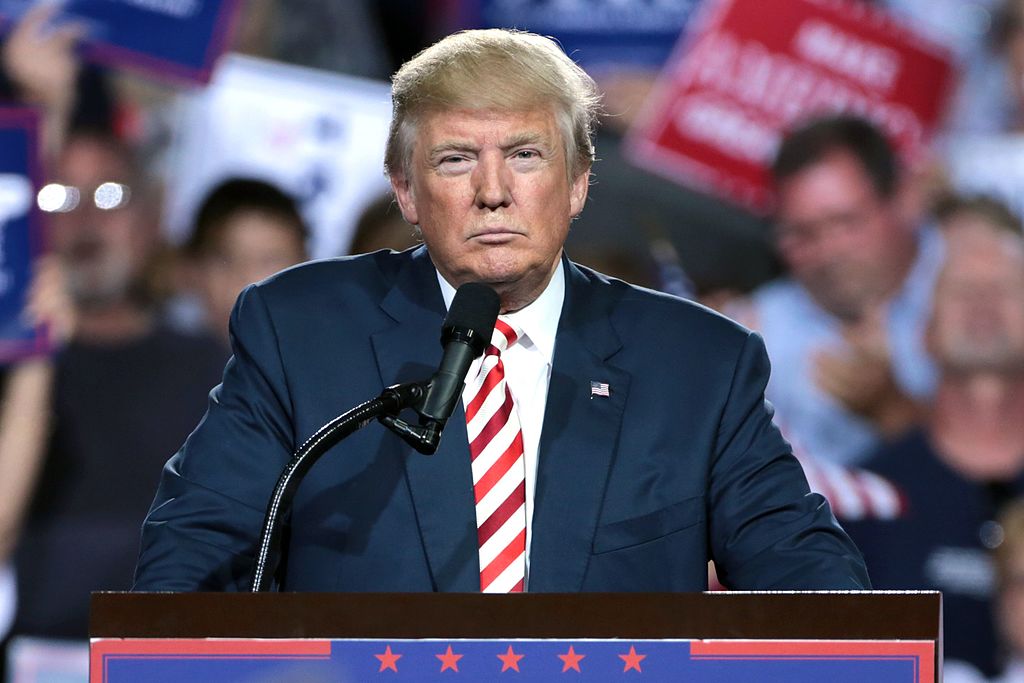Donald Trump’s recent press conference on August 9, 2024, has sparked significant controversy, with widespread criticism on social media for the event’s lack of substance and the former president’s frequent use of false claims. The event, which political observers closely watched, has reignited debates over media accountability and the role of journalists in challenging misleading statements made by public figures.
During the press conference, Trump addressed various topics, but his remarks quickly drew ire for being riddled with inaccuracies. Observers noted that many of his claims went unchallenged by the attending media, leading to a wave of backlash online. Social media platforms lit up with users expressing frustration over what they perceived as the media's failure to adequately fact-check or push back against Trump’s statements in real time.
Prominent voices, including political commentator Lawrence O'Donnell, criticized the media’s handling of the press conference. O'Donnell and others argued that the event was another missed opportunity for journalists to hold Trump accountable for his statements. This criticism has dogged Trump's coverage since his first presidential campaign.
The criticism extended beyond the content of Trump’s remarks, with many users drawing comparisons to the coverage of other political figures. Vice President Kamala Harris, for example, was cited by several users as a figure who has received less attention from the media, particularly in terms of scrutinizing her public statements and actions. This perceived imbalance in coverage has led to calls for more equitable and fact-based reporting across the political spectrum.
The discourse on social media underscores a growing concern among the public about the state of political journalism. As Trump remains a dominant figure in American politics, his ability to command media attention and disseminate unverified claims remains contentious. Critics argue that the media's approach to covering Trump, particularly in press conferences, has often lacked the rigor to counter misinformation effectively.
This latest press conference is not an isolated incident. Throughout his political career, Trump has been known for making bold, often unsubstantiated claims, a tactic that has both energized his base and exasperated his critics. The ongoing debate about how the media should navigate this dynamic highlights reporting challenges in an era where misinformation can spread rapidly and influence public opinion.
Calls for reform in how the media handles such events are growing louder. Advocates for stronger media accountability suggest that journalists need to be more assertive in fact-checking and challenging misleading statements as they occur. This approach, they argue, is essential for maintaining the integrity of public discourse and ensuring that the public receives accurate information.
As the 2024 presidential campaign heats up, the scrutiny of how the media covers candidates, particularly those with a history of controversial statements, will likely intensify. The recent backlash against Trump’s press conference reminds journalists of the critical role in shaping the narrative and holding public figures accountable.



 Ohio Man Indicted for Alleged Threat Against Vice President JD Vance, Faces Additional Federal Charges
Ohio Man Indicted for Alleged Threat Against Vice President JD Vance, Faces Additional Federal Charges  Japan Election 2026: Sanae Takaichi Poised for Landslide Win Despite Record Snowfall
Japan Election 2026: Sanae Takaichi Poised for Landslide Win Despite Record Snowfall  Trump Backs Nexstar–Tegna Merger Amid Shifting U.S. Media Landscape
Trump Backs Nexstar–Tegna Merger Amid Shifting U.S. Media Landscape  Trump Lifts 25% Tariff on Indian Goods in Strategic U.S.–India Trade and Energy Deal
Trump Lifts 25% Tariff on Indian Goods in Strategic U.S.–India Trade and Energy Deal  Trump Allegedly Sought Airport, Penn Station Renaming in Exchange for Hudson River Tunnel Funding
Trump Allegedly Sought Airport, Penn Station Renaming in Exchange for Hudson River Tunnel Funding  South Korea Assures U.S. on Trade Deal Commitments Amid Tariff Concerns
South Korea Assures U.S. on Trade Deal Commitments Amid Tariff Concerns  Trump Says “Very Good Talks” Underway on Russia-Ukraine War as Peace Efforts Continue
Trump Says “Very Good Talks” Underway on Russia-Ukraine War as Peace Efforts Continue  Pentagon Ends Military Education Programs With Harvard University
Pentagon Ends Military Education Programs With Harvard University  U.S. Lawmakers to Review Unredacted Jeffrey Epstein DOJ Files Starting Monday
U.S. Lawmakers to Review Unredacted Jeffrey Epstein DOJ Files Starting Monday  Trump Allows Commercial Fishing in Protected New England Waters
Trump Allows Commercial Fishing in Protected New England Waters  Trump’s Inflation Claims Clash With Voters’ Cost-of-Living Reality
Trump’s Inflation Claims Clash With Voters’ Cost-of-Living Reality  Jack Lang Resigns as Head of Arab World Institute Amid Epstein Controversy
Jack Lang Resigns as Head of Arab World Institute Amid Epstein Controversy  Nighttime Shelling Causes Serious Damage in Russia’s Belgorod Region Near Ukraine Border
Nighttime Shelling Causes Serious Damage in Russia’s Belgorod Region Near Ukraine Border  U.S. to Begin Paying UN Dues as Financial Crisis Spurs Push for Reforms
U.S. to Begin Paying UN Dues as Financial Crisis Spurs Push for Reforms  Netanyahu to Meet Trump in Washington as Iran Nuclear Talks Intensify
Netanyahu to Meet Trump in Washington as Iran Nuclear Talks Intensify  TrumpRx Website Launches to Offer Discounted Prescription Drugs for Cash-Paying Americans
TrumpRx Website Launches to Offer Discounted Prescription Drugs for Cash-Paying Americans 































